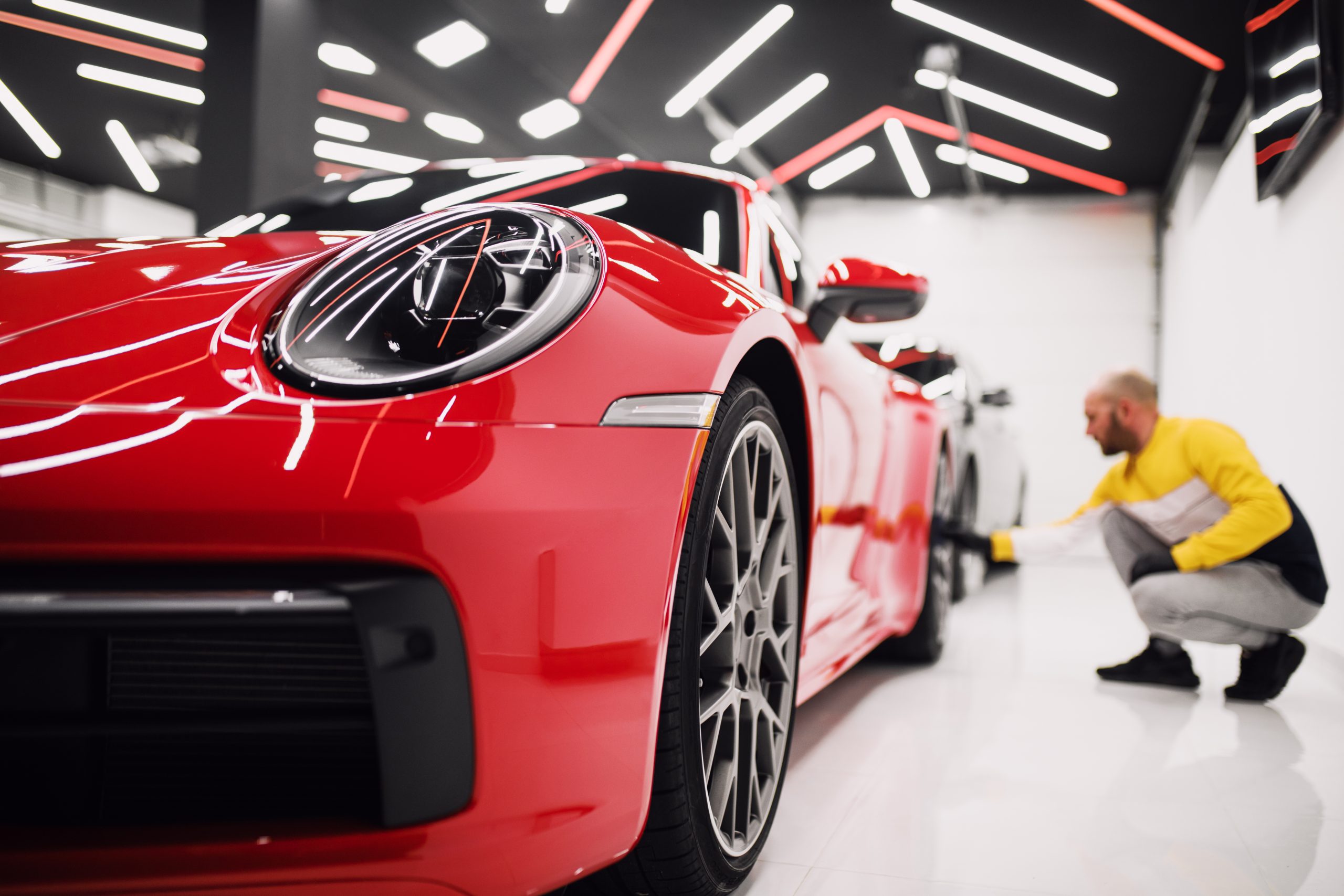From preserving the original paint job to providing a spectacular shine, ceramic coating promises an array of benefits for car enthusiasts. But questions often arise: Is ceramic coating worth it? Are there downsides to this protective measure? How long do these coatings really last? Let’s answer them honestly.
Here's a brief summary of our journey ahead:
- Ceramic coatings protect your car's paintwork from damage due to environmental factors, UV rays, scratches, and chemical stains.
- Misunderstandings persist about ceramic coatings. They are not invincible, but they provide substantial protection when compared to untreated surfaces.
- There are potential downsides to ceramic coatings, such as upfront costs and the need for professional application, but many find the long-term benefits outweigh these factors.
- Ceramic coatings aren't permanent solutions; they wear off over time. However, their lifespan can extend up to several years with proper maintenance.
- Choosing Nasiol Ceramic Coatings can potentially extend the longevity of your car's aesthetic appeal, reducing the need for frequent paint jobs.

This article addresses these common concerns head-on. We'll shine a spotlight on ceramic coatings, discussing what they are, the perceived disadvantages, their lifespan, and why Nasiol NL272 and ZR53 coatings stand out in the crowd.
What is Ceramic Coating?
Ceramic coating, also known as nano-coating, is a revolutionary protective layer that can be applied to a vehicle's exterior surfaces. It bonds at a molecular level with your car's paint, forming a tough, hydrophobic shield against environmental damage, scratches, chemical stains, and UV rays.
Created with compounds like silicon dioxide (SiO2), titanium dioxide (TiO2), and activated silicon-organic compounds, this innovative technology offers a transparent, impermeable surface that provides lasting protection and a glossy finish.

Common Concerns About Ceramic Coating
Ceramic coatings offer numerous benefits but like any product, there are valid concerns and questions that often arise from potential users. The most frequent concerns revolve around the value of the investment, the potential downsides, and the durability of the coating.
Let's address these common concerns and clarify misconceptions around ceramic coatings.
Is Ceramic Coating Worth It?
When considering the value of ceramic coatings, it's important to look beyond the initial cost. Yes, ceramic coating involves a certain investment, but the returns are quite substantial. The superior long-term paint protection it provides safeguards the vehicle from harmful elements that can degrade the car's appearance over time.
Aside from the protection aspect, ceramic coating also simplifies vehicle maintenance. The hydrophobic nature of ceramic coatings means that water beads off easily, and dirt or grime can be washed off with less effort.
Moreover, the glossiness that ceramic coating imparts to a vehicle is unparalleled, enhancing the car's aesthetic appeal. When you tally these benefits, it becomes apparent that ceramic coating is a savvy investment for the long haul.

Is There a Downside to Ceramic Coating?
While ceramic coating has clear benefits, we must address potential downsides. The cost is a primary concern for many. Yes, there's an initial expense, but consider the problems that might emerge in the paint and body from external factors, problems that can significantly reduce your vehicle's value.
When professionally applied, ceramic coating isn't a cheap solution. This raises the question: Can we apply it ourselves? While the answer is yes, it's worth noting that if it's not applied correctly, one might not achieve the desired protection or durability.
All these concerns can be eased by choosing a quality product and securing professional installation. Though this might push up the initial cost, it's a strategic move. Ceramic coating serves as a robust shield in the long run, safeguarding the value of your car and potentially recuperating the investment.

How Long Do Ceramic Coatings Last?
The lifespan of a ceramic coating is another common concern. This is understandable, considering the investment involved. However, it's important to note that the longevity of a coating is largely dependent on the quality of the product and maintenance post-application.
The market, unfortunately, is riddled with subpar products making lofty promises of 10 to 15 years or even lifetime durability, which often fall short. This underscores the importance of sourcing your ceramic coatings from established and trusted brands.
With renowned products, such as our Nasiol NL272, up to 5 years of steadfast protection is not just a claim, it's a commitment. Similarly, our ZR53 guards for up to 3 years. It's worth noting that even with the highest quality products, these timeframes are contingent on diligent maintenance, ensuring that the returns on your investment are realized in full.

Why Choose Nasiol Ceramic Coatings?
Nasiol's Ceramic Coatings stand out in the crowded market of automotive paint protection due to a number of reasons. When you opt for Nasiol, you are choosing a product that is backed by years of research, stringent quality controls, and a clear understanding of what car owners need.
Here's why Nasiol Ceramic Coatings should be your first choice.
- Superior Protection: At Nasiol, our ceramic coatings are designed to provide your car with superior protection against a variety of harmful elements. From harmful UV rays that can cause your paint to fade, to chemical stains and etching, our products offer a defensive shield that is unrivalled.
- Long-lasting Gloss: Nasiol's Ceramic Coatings are not just about protection, they are also about aesthetics. Our coatings enhance the gloss and shine of your vehicle, giving it a fresh-from-the-showroom look. And, what's better is that this glossiness lasts far longer than it would with traditional waxes or sealants.
- Longevity: We believe in offering products that last. Our Nasiol NL272 provides up to 5 years of protection, while our ZR53 coating offers up to 3 years. This surpasses many other options in the market, providing car owners with peace of mind and value for their investment.
- Easy Maintenance: With Nasiol's Ceramic Coatings, cleaning your car becomes an easier task. Our products have hydrophobic properties that mean water and grime slide off the surface, reducing the time and effort required to keep your vehicle looking its best.
- Eco-friendly: We understand the importance of caring for the environment, which is why our products are designed to be eco-friendly. Thanks to the easy cleaning of the vehicle with our ceramic coatings, less chemical detergents and water are required. This means less harm is done to nature, and resources are protected. Using Nasiol's Ceramic Coatings not only ensures your car looks its best but also means you're making a responsible choice for the planet.

Final Thoughts
While it is crucial to weigh the pros and cons when deciding on any investment for your vehicle, the scales decidedly tip in favor of ceramic coating when it comes to providing the ultimate paint protection.
When you choose a premium product like Nl 272 or ZR53, you’re not just getting a ceramic coating; you're making a commitment to long-lasting, superior protection for your car. Choose wisely, choose Nasiol.



Leave a Reply